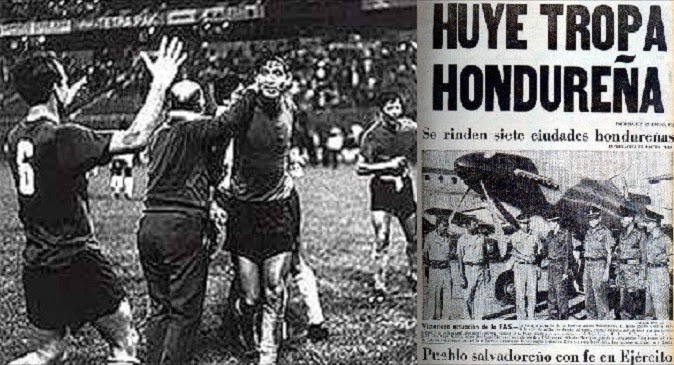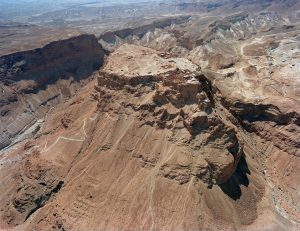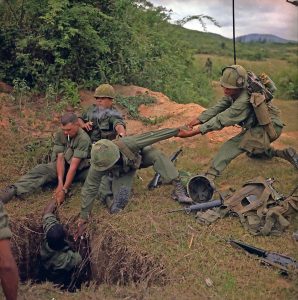
The 1969 play-off match between El Salvador and Honduras (two teams that are not only neighbors but rivals) was filled with anticipation and aggression. This playoff match would decide which nation would be attending the world cup, and which would be staying home. El Salvador and Honduras had each won one match which forced a third, and final, play-off match.1 In the prior matches, fights had broken out between fans in the street and in the stands during the game. But on the day of the final play-off, a much more significant event would take place. The game was scheduled in Mexico City: a third-party country with no bias toward either team. The day of the playoff, El Salvador dissolved all diplomatic ties with Honduras right before the match.
In the first game between the two nations, Honduras won the match 1-0 in its own capital. Some Hondurans stayed outside of the hotel that the El Salvador team had been staying at and threw rocks, set off car alarms and threw firecrackers.2 The 2nd match took place in San Salvador, where the home fans would watch their team win by a commanding score of 3-0. Before the 2nd match took place, the Honduran National team had a security force with them at all times. During the game the security at the stadium was extremely tight with lots of alcohol and weapons confiscated as a security precaution. As the Honduran national anthem played, the home team and fans were extremely disrespectful towards the players and their country. This caused some whiplash for El Salvadorians living in Honduras as their businesses were boycotted and vandalized.3 Leading up to the series of matches, the two nations were in a deep dispute over land reform and immigration. El Salvador was sending its poorest citizens into Honduras so the wealthy could maintain their land.4 El Salvador had a much bigger population than Honduras. Honduras had a population of about 2 million, where as El Salvador had a population of almost 4 million.5

However, they had a significantly smaller amount of land which forced more than 275,000 El Salvadorians to flee into Honduras, causing poverty and crime.6 Honduras accused the El Salvadorians of stealing jobs from the native people of Honduras. But after the 2nd games violence, El Salvador accused Honduras of staying silent while El Salvadorians living in Honduras were raped, murdered, robbed, and oppressed. Neither side was willing to negotiate to the smallest extent, which led to tensions building up even more. In the final match between the two teams, El Salvador won the game in overtime with the score of three to two.7 This caused numerous Salvadorians to be killed in Honduras.8
On July 14th, 1969, almost 3 weeks after the final playoff game, El Salvador bombed targets inside of Honduras. They crippled Honduras by attacking their main airport which left them unable to react to the attack at optimal speed.9 El Salvador then attacked from the ground by marching through the two main roads that connect the countries. Only one day later, the El Salvadorian army had pushed Honduras back over 8 kilometers. The El Salvadorian Army continued to make steady progress. They were nearing the capital city of Honduras, Tegucigalpa, when Honduras finally pushed back. The Honduran Air Force attacked Llopango base. The bombers eventually progressed to Acajutla port, which was important because it was home to El Salvadorian oil refineries. Later that evening huge smoke clouds covered the coast as the the oil refineries were bombed.10
Fearing that the nearing El Salvadorian army would overtake the capital, Honduras called the Organization of American States for help. The Organization of American States (OAS) had an urgent meeting on the evening of July 15th and called for El Salvador to withdraw its troops from Honduras ensuring that its people living in Honduras would not be harmed.11 El Salvador refused, demanding reparations be paid to them and their citizens. El Salvador attempted to further the attack the capital city, but they were unable to proceed with the attack. The previous strike on their oil refineries had destroyed their line of fuels and supplies and they no longer had supplies arriving every other day. Somoza Debayle, the dictator of Nicaragua was also helping Hondurans by arming them with weapons and providing ammunition. The OAS worked night and day in order to provide a cease-fire that would please both parties. Finally, on the night of July 18th, a ceasefire was arranged and became effective two days later.12
Although the cease-fire had been called, El Salvador refused to leave Honduras. They stayed until they were threatened by the OAS with economic sanctions against them. The El Salvador government finally withdrew troops on August 2, 1969. The aftermath of the 100-hour war was anything but slim. More than 2000 civilians were killed, with more than 100,000 immigrants displaced.13 Although they were no longer at war with each other, these two nations peace treaty only came into force on December 10, 1980.14
- Paul Joseph, The SAGE Encyclopedia of War: Social Science Perspectives, 2017 s.v . “Soccer War.” ↵
- Hatcher Graham, Salem Press Encyclopedia, 2013, s.v “Soccer War.” ↵
- Steve C. Ropp, 1982, “The War of the Dispossessed: Honduras and El Salvador, 1969. Thomas P. Anderson.” The Hispanic American Historical Review, no. 2: 296. JSTOR Journals, EBSCOhost (accessed February 5, 2018). ↵
- Richter, Ernesto, John Beverly, Bob Dash, and Irma Fernandez Dash. “Social Classes, Accumulation, and the Crisis of “Overpopulation” in El Salvador” Latin American Perspectives, 7, 1980 ↵
- Ernesto Richter, John Beverly, Bob Dash, and Irma Fernandez Dash. “Social Classes, Accumulation, and the Crisis of “Overpopulation” in El Salvador”, Latin American Perspectives, 7, 1980. ↵
- Charles Clements, Witness to War: an American Doctor in El Salvador (New York; Bantam Book, 1984). ↵
- Hatcher Graham, Salem Press Encyclopedia, 2013, s.v “Soccer War.” ↵
- Charles Clements, Witness to War: an American Doctor in El Salvador (New York; Bantam Book, 1984). ↵
- Charles Clements, Witness to War: an American Doctor in El Salvador (New York; Bantam Book, 1984). ↵
- Charles Clements, Witness to War: an American Doctor in El Salvador (New York; Bantam Book, 1984). ↵
- Charles Clements, Witness to War: an American Doctor in El Salvador (New York; Bantam Book, 1984). ↵
- Charles Clements, Witness to War: an American Doctor in El Salvador (New York; Bantam Book, 1984). ↵
- Charles, Clements, Witness to War: an American Doctor in El Salvador (New York; Bantam Book, 1984). ↵
- Charles Clements, Witness to War: an American Doctor in El Salvador (New York; Bantam Book, 1984); and United Nations -Treaties Series, General Peace Treaty Between the Republics of El Salvador and Honduras, 1980, https://peacemaker.un.org/sites/peacemaker.un.org/files/HN-SV_801030_GeneralTreatyOfPeaceElSalvadorHonduras.pdf. ↵



106 comments
Adrian Cook
I have never heard of a rivalry that almost lead to the destruction of both home towns. I know soccer is a big part of those countries but almost killing and destroying things is not the way to solve issues. There was a lot of hatred between people but what was all of it for? Many people died and ended up losing family members as the many who didn’t die ended up getting displaced. I’m glad now it’s fixed but it could’ve all been prevented.
Natalie Juarez
I honestly had never heard about this part of history and the rivalry between the two nations of Honduras and El Salvador until now. It’s devastating to learn that El Salvadorians were killed in Honduras just because El Salvador won in the final match. The violence and tension were so intense between the two nations and their people, and that makes me awfully sad. I found it interesting that the final playoff game was scheduled in Mexico for no biased views and acts toward both nations. Despite that fact, the war between the two rivalry nations continued. Thank you for informing me about this part of history in a well written and organized manner.
Samantha Luckey
Sports is a catalyst that has the possibility of being either a divider or unifier. As you have clearly detailed, it was the former for Honduras and El Salvador. In comparison, the United States has faced similar troubles, if not too a lesser degree, regarding sports. That trouble underlies a racial component that is unique to the contextual history of slavery, that the United States is disgraced with. While the relationship between Honduras and El Salvador, seems to be a saddening neighboring national dispute.
Lamont Traylor
It’s so hard to believe that this ridiculous article is true. It honestly makes me sick to see examples of what humans are capable of and what they are willing to do over a petty rivalry and soccer game. People being raped, stores being vandalized and just all out hatred being spread through both nations is totally inhuman and unnecessary. I hope one day, everyone in the world can get past our hateful nature and become one nation.
Jorge Martinez
As a “retired” soccer player, I understand the fundamentals of a rivalry and know how much it sucks to lose. However, the brutality and hatred shown with El Salvador and Honduras is unexceptionable. Stealing, killing, raping, someone simply because their nation prevented your nation to advance to the world cup is wrong. I have done research on Oscar Romero, a priest that would help start the El Salvadoran Revolution and I had no idea that this was occurring.
Stephanie Nava
It is crazy to think that the thing that pushed these two countries over the edge was a series of games for the World Cup. Instead of celebrating their wins, these countries killed each other’s civilians and started a war. It is even more depressing that they did not put their peace treaty into force until 1980, that is 11 years! The relations between Honduras and El Salvador at the time kind of reminds me of the relations between Mexico and United States today. I wonder if something like this were to happen in North America, what would be the thing to push these countries over the edge?
Adam Portillo
It’s crazy how politics makes it’s way into sports but somehow it always does. Even now we see it in our own country within the NFL. For me this article was interesting to read because I had no idea that a war was a result of a game and also other political issues. Having pride in one’s country and team is okay but having too much pride to the point of a war breaking out is definitely unreasonable and crossing the line. I could imagine that these matches were ver intense with a lot of emotion. Enjoyed reading this article.
Cynthia Rodriguez
I really liked this article. It is engaging and very informative. I thought it was a great idea to use the soccer rivalry to help demonstrate the already existing tension between the two countries. It is so crazy to me that tons of violence broke out after the final playoff game. Sports bring people together and it is sad that this specific game did the exact opposite.
Angel Torres
As much of a soccer fanatic that I am, I had yet to hear about this story between El Salvador and Honduras. It saddens me when a sport like soccer that is meant to unify countries and individuals from all sorts of backgrounds is seen as a trigger to an event that led to the death of more than 2000 civilians. I hope countries learned from El Salvador’s and Honduras’ mistake and do not allow and soccer match to be the reason countries go to war with one another.
Engelbert Madrid
I’m a huge soccer fan and I know about this historical event because of my dad. My dad was born in El Salvador in 1976, so at the age of four he was living through a civil war. My dad has shared me his past experiences and memories while he was in El Salvador. Later, I learned about the social-political problems that Honduras and El Salvador faced. It is shocking how soccer was involved in a political problem between this two countries. As a result, the war ended with nothing resolved. It was just a mess.